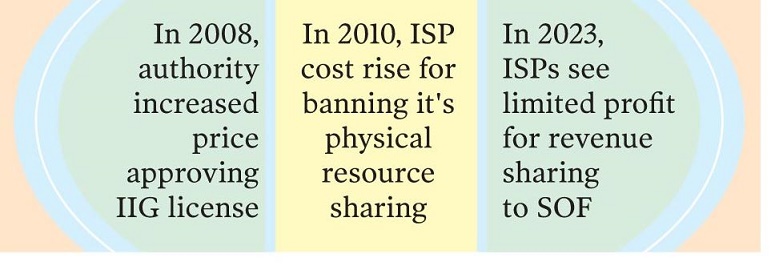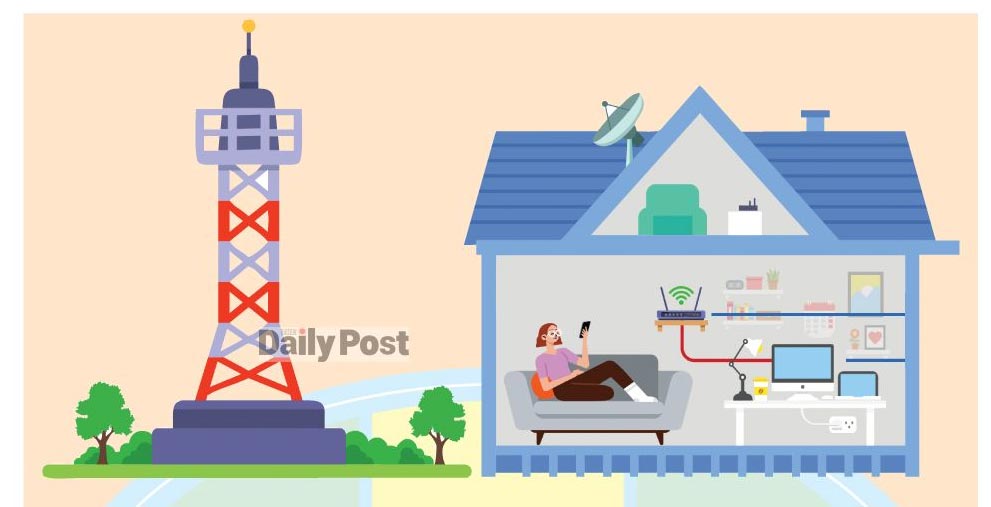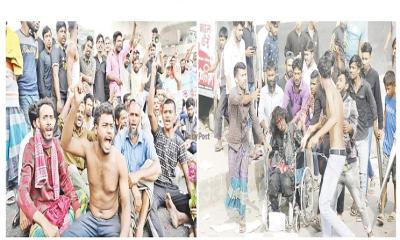# In 2008, authority increased price approving IIG license
# In 2021, cost rise for ISPs removing ISP cache server
# In 2010, ISP cost rise for banning it's physical resource sharing
# In 2023, ISPs see limited profit for revenue-sharing to SOF

Despite the Bangladesh Telecommunication Regulatory Commission (BTRC) implemented a number of strategies over the past 16 years, people still have to pay high prices for this slow speeds of internet.
Of lately, a report showed that Bangladesh has one of the slowest mobile data speeds in the region, lower than neighbouring Myanmar, with prices higher than neighbouring India and Pakistan or even developed nations like Italy and France.
The concerned said that the BTRC has turned into a money-making machine for the government rather than a facilitator of connectivity. Take the BTRC's 2021 order to remove cache servers from small and medium sized internet service providers (ISPs), also known for company that offers internet access and related services to individuals and organizations. That meant ISPs were not allowed to store content locally, forcing users to travel longer distances to access it. As a result, ISPs incur increased costs and internet users experience slower speeds.
Industry insiders claim that ISPs have to pay an additional Tk 80 to Tk 120 per Mbps of internet compared to mobile operators due to these rules. This disparity puts ISPs, especially in rural areas, at a competitive disadvantage.
It was known that the global internet supply broadly passes through several stages to reach households and offices. It first reaches Bangladesh via submarine or terrestrial cables at landing stations. Then International Internet Gateways (IIGs) then handle the data, passing it to the National Telecommunication Transmission Network (NTTN), which distributes it across the country. ISPs deliver internet directly to homes and businesses through local distribution networks, while mobile network operators (MNOs) receive internet from the IIGs.
Meanwhile, BTRC also imposed restrictions on ISPs, prohibiting them from sharing physical resources like fibre-optic cables and active network equipment such as switches, routers and optical line terminals. However, the ban on resource sharing has forced individual ISPs to incur higher expenses, which are ultimately passed on to consumers, making internet services pricier. Currently, ISP licensing guidelines limit ISPs to installing optical fibre within a 3-kilometre radius in metropolitan areas and 6 kilometres in non-metropolitan areas. The BTRC has also implemented a regulatory framework that sets fixed buying and selling prices for ISPs while mobile operators are exempt from such pricing mechanisms. This policy has created an uneven playing field in the internet service sector.
According to concerned, ISPs have to pay an additional Tk 80 to Tk 120 per Mbps of internet compared to mobile operators due to these rules. This disparity puts ISPs, especially in rural areas, at a competitive disadvantage. The fixed rates and higher transmission costs lead to higher internet prices in rural areas compared to cities.
Regarding this matter, Syed Almas Kabir, former president of the Bangladesh Association of Software and Information Services (BASIS) said that the additional costs incurred by ISPs in rural regions are often passed on to end users, further widening the digital divide. Although transmission prices for wholesale internet should have decreased due to increased usage, these tariffs have not been readjusted in a long time.
In the meantime, last year, the BTRC introduced a 1 percent revenue-sharing requirement for ISPs to contribute to the Social Obligation Fund (SOF). ISPAB President Hoque said that under the "one country, one rate" policy, ISPs sell the internet at a fixed price with very limited profit margins. If we have to contribute another 1 percent of our revenue to the fund, many ISPs may not survive.
Major General Md Emdad ul Bari, chairman of the BTRC, said the commission is reviewing different licensing regimes and working on various issues to reduce internet prices.
Nahid Islam, the adviser for posts and telecommunications said recently that they are currently discussing with stakeholders to find ways to lower internet prices.
ZH






